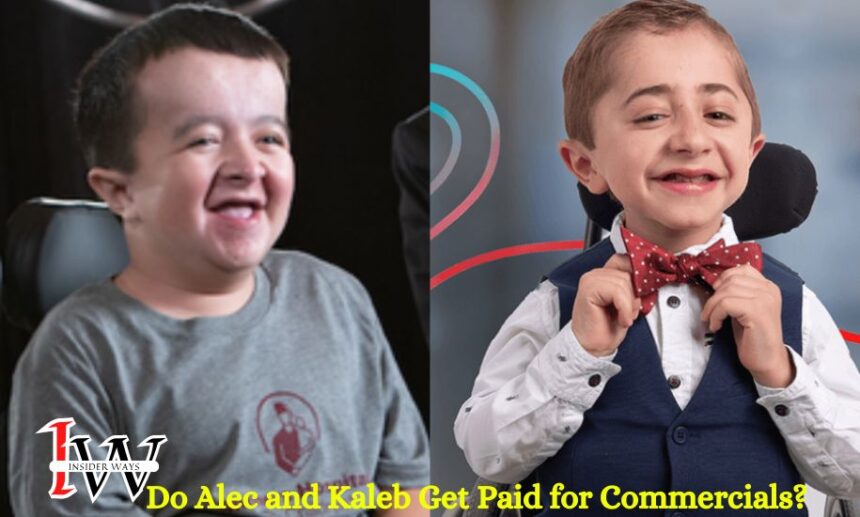Alec Cabacungan and Kaleb Wolf have become familiar faces to many through their appearances in commercials for Shriners Hospitals for Children. These commercials, which have touched the hearts of millions, often lead viewers to wonder: Do Alec and Kaleb get paid for commercials? This article delves into the various aspects of their involvement in these ads, addressing the financial aspects and shedding light on the broader context of their roles. Throughout this exploration, we will use the full keyword, “Do Alec and Kaleb Get Paid for Commercials,” to maintain a consistent focus on the topic.
Who Are Alec and Kaleb?
Before diving into the specifics of whether Alec and Kaleb get paid for commercials, it’s important to understand who they are and what they represent. Alec Cabacungan and Kaleb Wolf are both young ambassadors for Shriners Hospitals for Children, a network of non-profit medical facilities that provide specialized care for children with orthopedic conditions, burns, spinal cord injuries, and more.
Both Alec and Kaleb suffer from Osteogenesis Imperfecta (OI), a rare genetic disorder that causes fragile bones. Despite their medical challenges, these two young men have become inspiring figures, not only for the patients at Shriners but also for millions of viewers across the country. Their stories of resilience and determination are central to the commercials they star in, making them powerful advocates for the cause.
Do Alec and Kaleb Get Paid for Commercials?
The central question of this article, “Do Alec and Kaleb Get Paid for Commercials?” is one that many people are curious about. The simple answer is yes, Alec and Kaleb do receive compensation for their appearances in these commercials. However, the exact details of their payment are not publicly disclosed, as is common in the commercial and advertising industry.
According to industry standards, actors in national commercials, particularly those associated with well-known brands or charitable organizations, typically receive both upfront fees and residuals. Residuals are payments made to actors for the continued airing of a commercial. Given the frequency with which Alec and Kaleb’s commercials are aired, it’s reasonable to assume that their compensation is substantial, reflecting their significant roles in these campaigns.
The Role of Union Membership in Their Compensation
One factor that often influences whether actors like Alec and Kaleb get paid for commercials is union membership. Many actors in the United States are part of the Screen Actors Guild – American Federation of Television and Radio Artists (SAG-AFTRA), which sets standards for compensation and working conditions. If Alec and Kaleb are union members, they would be entitled to benefits such as minimum wage scales, health and pension benefits, and residuals for repeated airings of their commercials.
However, whether or not Alec and Kaleb are union members has not been publicly confirmed. Regardless, their status as prominent figures in national advertising campaigns likely ensures that they receive compensation that aligns with industry norms.
Why Do Alec and Kaleb Get Paid for Commercials?
The reason why Alec and Kaleb get paid for commercials is rooted in both the advertising industry and the value they bring to these campaigns. Commercial actors are compensated for their time, talent, and the unique appeal they bring to a product or cause. In the case of Alec and Kaleb, their personal stories of overcoming adversity and their strong connection with the Shriners brand make them invaluable assets to the organization.
Their ability to connect with audiences on an emotional level helps to drive donations and awareness for Shriners Hospitals for Children. This, in turn, justifies their compensation, as they play a crucial role in the success of the organization’s fundraising efforts.
The Broader Impact of Their Commercial Work
Beyond the question of “Do Alec and Kaleb Get Paid for Commercials?” lies the broader impact of their work. Alec and Kaleb are not just commercial actors; they are ambassadors for a cause. Their appearances in commercials help to raise awareness about the services provided by Shriners Hospitals for Children, inspiring donations and support from the public.
Moreover, their visibility in these commercials has helped to challenge stereotypes about people with disabilities. By showcasing their talents, resilience, and contributions to society, Alec and Kaleb help to shift public perceptions, promoting a more inclusive view of people with disabilities.
Insider Ways: Alec and Kaleb’s Connection with the Audience
Alec and Kaleb’s ability to connect with audiences is a significant factor in their success as commercial actors. At Insider Ways, we recognize that their authenticity and genuine passion for the cause resonate deeply with viewers. This connection is not just about acting; it’s about representing a cause they truly believe in.
Their work with Shriners Hospitals for Children goes beyond mere commercial appearances. Both Alec and Kaleb are involved in various fundraising events, public speaking engagements, and social media campaigns. These activities further solidify their roles as key figures in the organization’s efforts to support children with medical needs.
The Ethical Considerations of Their Compensation
While discussing “Do Alec and Kaleb Get Paid for Commercials?” it is also important to consider the ethical aspects of compensating individuals who are representing a charitable cause. Some might question whether it is appropriate for Alec and Kaleb to be paid for their work in commercials that promote a non-profit organization.
However, it’s crucial to understand that their compensation does not detract from the charitable mission of Shriners Hospitals for Children. In fact, by compensating Alec and Kaleb fairly, the organization ensures that they can continue their advocacy work without financial hardship. Their compensation is a recognition of the value they bring to the cause, and it enables them to focus on their roles as ambassadors for Shriners.
How Much Do Alec and Kaleb Get Paid for Commercials?
While the specific figures regarding how much Alec and Kaleb get paid for commercials are not publicly available, it’s possible to make some educated guesses based on industry standards. Actors in national commercials, especially those that air frequently and have significant reach, can earn anywhere from several thousand to tens of thousands of dollars per commercial.
Given the popularity of Alec and Kaleb’s commercials and their status as central figures in these campaigns, it’s likely that their compensation is on the higher end of this spectrum. Additionally, if they receive residuals for repeated airings of their commercials, their total earnings could be quite substantial.
Insider Ways: The Importance of Transparency in Compensation
At Insider Ways, we believe that transparency in compensation is important, especially when it comes to public figures like Alec and Kaleb who represent charitable causes. While their exact earnings may not be disclosed, it’s reassuring to know that they are compensated fairly for their work. This transparency helps to maintain trust between the public, the organization, and the individuals involved in these campaigns.
Understanding the financial aspects of Alec and Kaleb’s work also sheds light on the broader context of commercial acting and the importance of compensating individuals who contribute to the success of charitable campaigns. It underscores the value of their contributions and the need for fair compensation in all sectors of the industry.
Conclusion: A Closer Look at “Do Alec and Kaleb Get Paid for Commercials?”
In conclusion, the question “Do Alec and Kaleb Get Paid for Commercials?” is answered with a resounding yes. Alec Cabacungan and Kaleb Wolf, through their appearances in Shriners Hospitals for Children commercials, receive compensation for their work. This compensation reflects the significant impact they have on the organization’s fundraising efforts and the broader public’s awareness of the services provided by Shriners.
Their roles go beyond just being commercial actors; they are ambassadors, advocates, and inspirations to many. By understanding the financial aspects of their work, we can better appreciate the value they bring to the cause and the importance of their continued involvement in these campaigns.
As we at Insider Ways continue to explore topics related to advertising, media, and social causes, Alec and Kaleb’s story serves as a powerful reminder of the impact that individuals can have when they use their voices and experiences to make a difference. Their work is a testament to the power of representation and the importance of fair compensation for those who contribute to the success of charitable endeavors.





